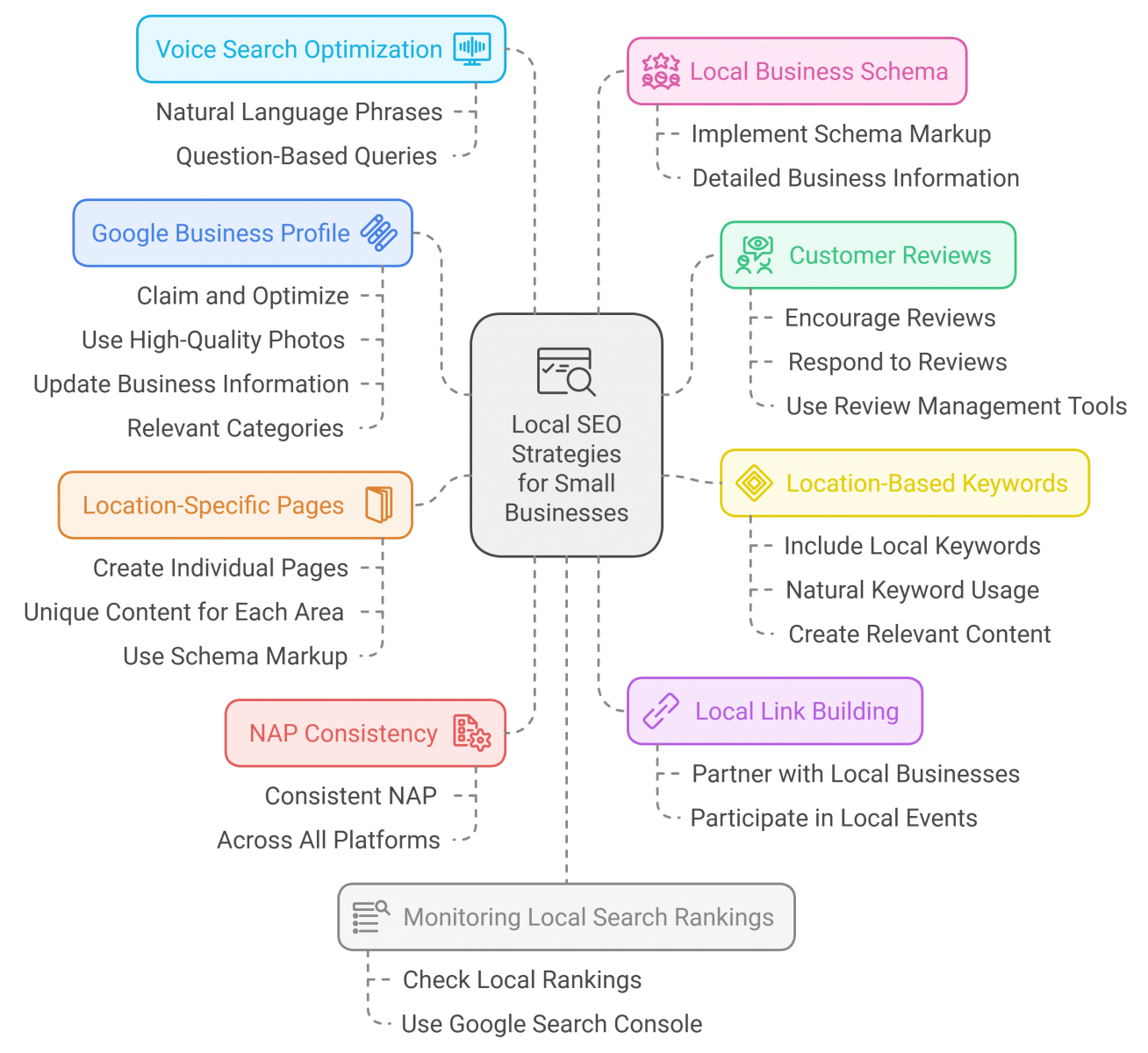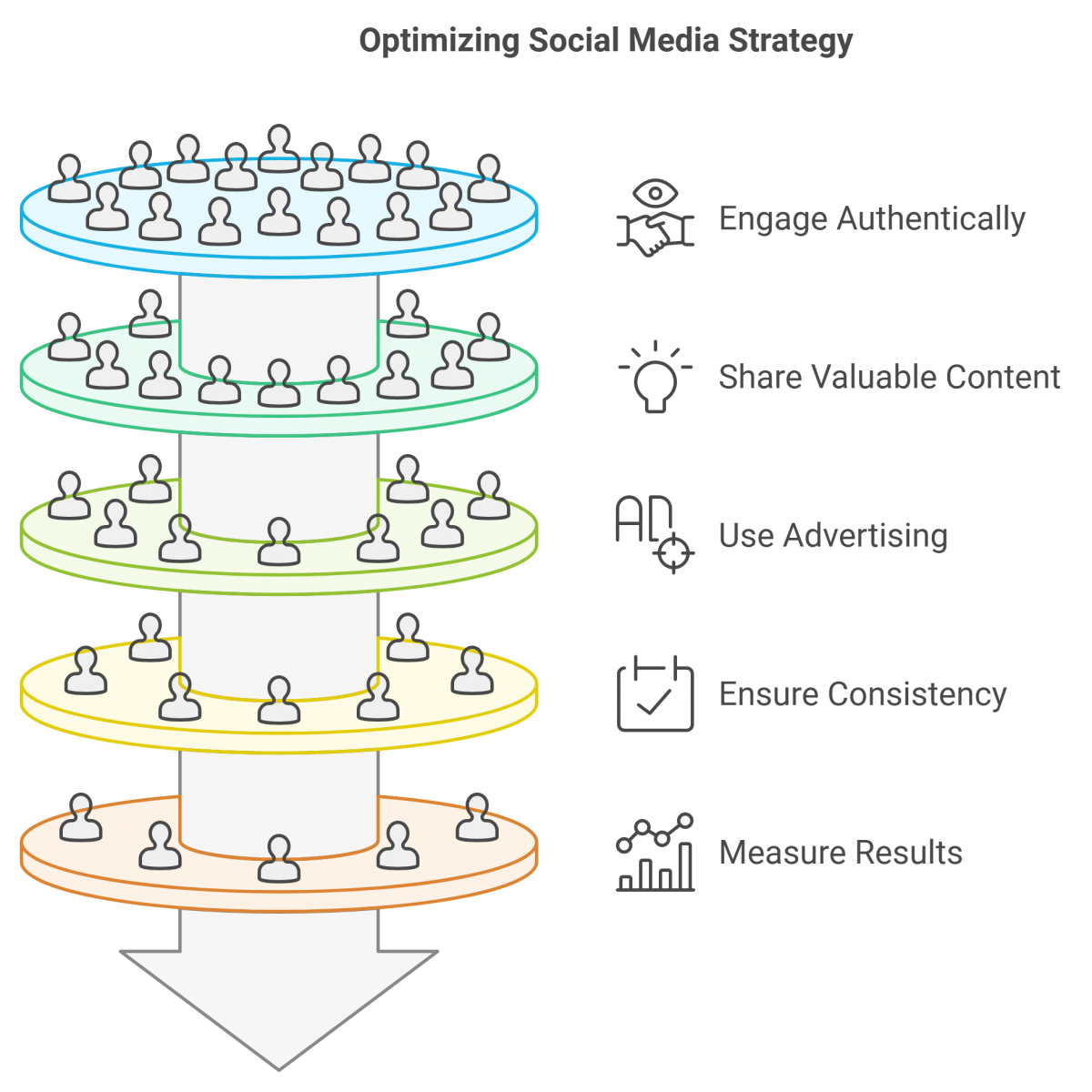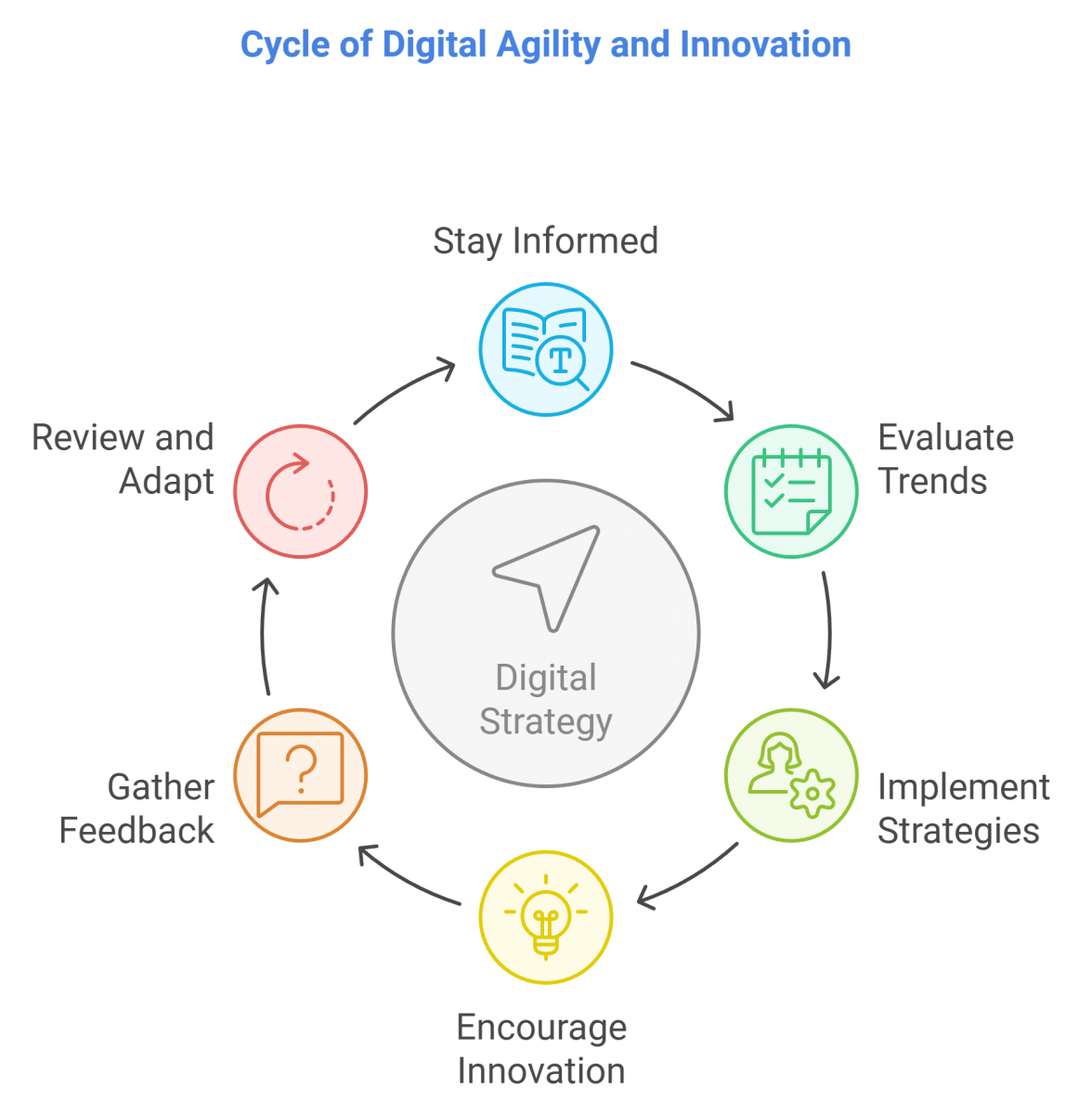Outsmarting the Competition: Digital Marketing Strategies for Small Businesses
November 18th, 2024

In today's digital age, small businesses face fierce competition from both local rivals and large corporations. However, with the right digital marketing strategies, you can level the playing field and outmaneuver your competitors. Here's how to outsmart the competition and grow your small business using effective digital marketing tactics.
Embrace Local SEO
For small businesses, local customers are often the lifeblood of your operations. Local SEO is a powerful tool to ensure that your business appears prominently when potential customers in your area are searching for your products or services.

Here's how to make the most of Local SEO:
1. Claim and Optimize Your Google Business Profile
- This is your business's official presence on Google. Claim it and fill out every section.
- Use high-quality photos of your business, products, and team.
- Keep your business hours, contact information, and services up to date.
- Use relevant categories to describe your business accurately.
2. Encourage and Manage Customer Reviews
- Positive reviews can significantly boost your local search rankings.
- Develop a strategy to consistently ask satisfied customers for reviews.
- Respond to all reviews, both positive and negative, professionally and promptly.
- Use review management tools to monitor your online reputation across various platforms.
3. Incorporate Location-Based Keywords
- Include your city, neighbourhood, and region in your website's content.
- Use these keywords naturally in your page titles, headers, meta descriptions, and throughout your content.
- Create content that's relevant to your local community, such as local events or news.
4. Create Location-Specific Pages
- If you serve multiple areas, create individual pages for each location.
- Include unique content, contact information, and customer testimonials specific to each area.
- Use schema markup to help search engines understand your local relevance.
5. Ensure NAP Consistency
- Your Name, Address, and Phone number (NAP) should be consistent across all online platforms.
- This includes your website, social media profiles, and business directories.
6. Leverage Local Link Building
- Partner with other local businesses and organizations for cross-promotion and backlinks.
- Participate in local events and sponsor local causes to gain mentions and links from local websites.
7. Optimize for Voice Search
- Many local searches are now done via voice assistants.
- Use natural language and question-based phrases in your content to align with voice search queries.
8. Use Local Business Schema
- Implement local business schema markup on your website to provide search engines with detailed information about your business.
9. Create Location-Based Content
- Develop blog posts, videos, or guides that are specifically relevant to your local area.
- This could include local attractions, events, or area-specific tips related to your industry.
10. Monitor Local Search Rankings
- Regularly check your rankings for important local keywords.
- Use tools like Google Search Console to understand how local searchers find your business.
By thoroughly implementing these Local SEO strategies, you'll increase your visibility in local search results, attract more nearby customers, and establish your business as a prominent player in your local market. Remember, Local SEO is an ongoing process, so continually refine and update your approach to maintain and improve your local search presence. Need a hand? Our brand building service will ensure your Google Business Profile is correctly set up and optimised.
Leverage Social Media Wisely
Don't try to be everywhere. Instead, focus on the platforms where your target audience spends their time. Engage authentically, share valuable content, and use social media advertising to reach a wider audience cost-effectively.
Start by researching which social media platforms are most popular among your ideal customers. Is it Facebook, Instagram, LinkedIn, or perhaps TikTok? Once you've identified the most relevant platforms, invest your time and resources in creating a strong presence on those specific channels.

Engagement is the cornerstone of social media success. Don't just broadcast your message; actively participate in conversations, respond to comments, and create content that encourages interaction. Share behind-the-scenes glimpses of your business, showcase your products or services in action, and tell stories that resonate with your audience.
Valuable content is what will keep your followers engaged and attract new ones. Share tips, insights, and information related to your industry that your audience will find useful. This positions you as an expert in your field and builds trust with potential customers.
While organic reach is important, don't overlook the power of social media advertising. Platforms like Facebook and Instagram offer highly targeted advertising options that allow you to reach your ideal customers based on demographics, interests, and behaviors. With a relatively small budget, you can significantly expand your reach and drive traffic to your website or physical store.
Remember, consistency is key in social media. Develop a content calendar to ensure regular posting, but don't sacrifice quality for quantity. It's better to post less frequently with high-quality, engaging content than to flood your feed with subpar posts.
Lastly, always measure your results. Use the analytics tools provided by each platform to understand what content resonates with your audience, when they're most active, and how your social media efforts are contributing to your business goals. Use these insights to continually refine your social media strategy and maximize your return on investment.
Stay Agile and Innovative
The digital landscape is constantly evolving. Stay informed about new trends and be willing to adapt your strategies. Sometimes, being the first to adopt a new platform or technique can give you a significant advantage.
Keeping yourself informed is crucial. Make it a habit to regularly read industry blogs, follow thought leaders on social media, and attend webinars or conferences when possible. This continuous learning will help you spot emerging trends before they become mainstream, giving you the opportunity to be an early adopter.

However, being aware of trends is only the first step. The real challenge lies in evaluating which ones are relevant to your business and having the courage to implement them. Not every new platform or technique will be right for you, but when you spot one that aligns with your business goals and target audience, don't be afraid to experiment.
Innovation doesn't always mean adopting the latest technology. It can also mean finding creative ways to use existing tools or combining different strategies in unique ways. For example, you might discover an innovative way to use a well-established social media platform to reach your audience or develop a novel approach to content marketing that sets you apart from competitors.
Remember that agility isn't just about adopting new things; it's also about being willing to let go of strategies that are no longer effective. Regularly review your marketing efforts and be prepared to pivot if something isn't delivering the results you need.
Encourage a culture of innovation within your team, if you have one. Create an environment where new ideas are welcomed and where calculated risks are seen as learning opportunities rather than failures.
Lastly, don't underestimate the power of customer feedback in driving innovation. Your customers can be an invaluable source of ideas for new products, services, or marketing approaches. Actively seek their input and be responsive to their changing needs and preferences.
By staying agile and innovative, you position your business to not just react to changes in the digital landscape, but to proactively shape your online presence in ways that continually engage and delight your customers.
Final Thoughts
While competing against larger businesses can seem daunting, these digital marketing strategies can help level the playing field. By focusing on your unique strengths, leveraging cost-effective digital tools, and staying agile, your small business can outsmart the competition and thrive in the digital marketplace.
Remember, effective digital marketing requires consistent effort and expertise. If you're feeling overwhelmed or unsure where to start, consider partnering with a digital marketing expert like Clixoni. We specialize in helping small businesses develop and implement powerful digital marketing strategies tailored to their unique needs and goals. Contact us today to learn how we can help your business stand out in the digital crowd.